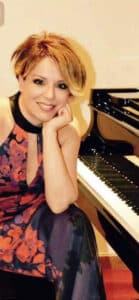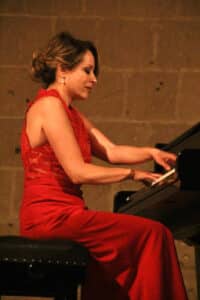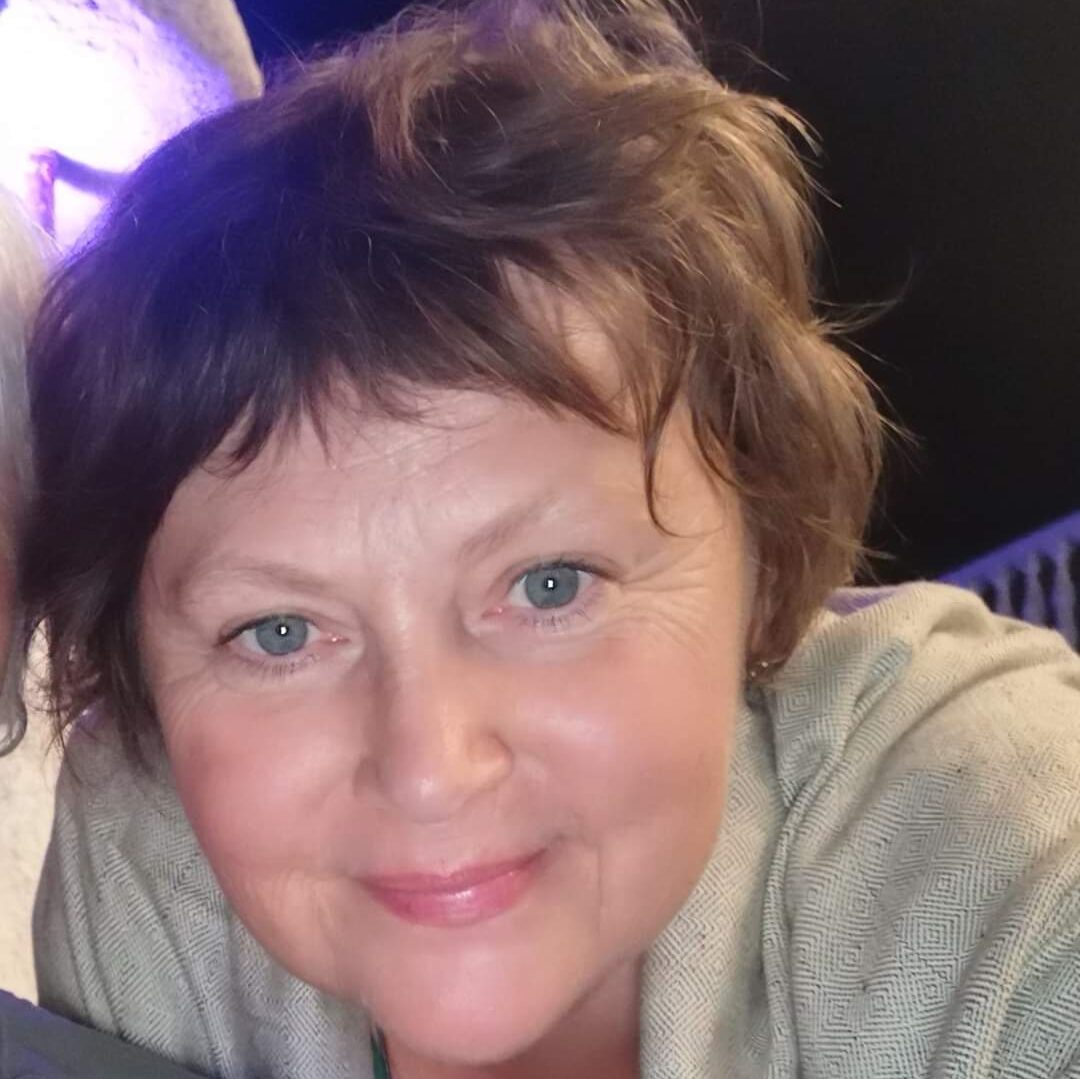In a home surrounded by pianos one local musician eventually went to Turkey and London to learn her craft. AGNIESZKA RAKOCZY meets a woman trying to perform around the world to underscore her position
When Ruya Taner’s grandmother heard that her seven-year-old granddaughter was going to travel to Ankara to study piano she uttered the resounding if despairing words – “not you as well”.
It was as if a dam had burst, the woman married to band master Zeki Taner and already the mother of two musicians expressing in that singular utterance her resigned frustration that the family had produced yet another musician who was about to submit to the exacting demands and rigorous discipline of study and practice that is the lot of those gifted with the talent to pursue the arduous challenge of a career as a professional musician.
“My grandmother was a conservative lady,” the internationally renowned Turkish Cypriot concert pianist and Steinway artist Ruya recalls. “True, she was surrounded by musicians but her tolerance had limits. For example, when my aunt told her that she wanted to become an opera singer she put her foot down. Having an opera singer in the family was clearly too much… My aunt became a piano teacher instead. And when I was small, my grandmother used to tell me: ‘don’t listen to your father, stop practicing, do something else’.”
So why didn’t she listen to her grandma’s advice? “Well, it would be difficult. I was surrounded by pianos. My grandparents had one and so did my father. I was brought up with music. My father was practicing in the morning, teaching in the afternoon, conducting at night. Trying to play piano myself seemed like a very natural thing to me. Nobody forced me. And once my father noticed I was talented he started guiding me.”

Ruya’s recall of the events of 1974 are from the perspective of a three-year-old child sitting in her father’s lap and seeing Turkish soldiers running through the garden of their house in north Nicosia. She remembers going down the staircase into her grandaunt’s cellar where dry food had been stored “ready for the war”. The year that followed marked a huge change in her life since it was then that her father decided to start giving her piano lessons.
“The problem was that because he was my father, I didn’t take these lessons seriously. He soon realised he had to find somebody else to offer me guidance. So when I was seven, we embarked on this trip to Ankara where he presented me to the well-known Turkish pianist Idil Biret. It was she who suggested I should start studying with her old teacher Mithat Fenmen.”
Coming under the wings of two such famous Turkish pianists as Fenmen and Biret meant for Ruya a very special pedagogical lineage. Composer, pianist and teacher Fenmen. as a young man had studied in Paris with Alfred Cortot and Nadia Boulanger, memorably described by one leading contemporary composer as “the most influential teacher since Socrates”. He made significant contributions to the development of polyphonic music life in Turkey, and in addition to Biret, also taught such famous pianists as Gülsin Onay and Fazıl Say .
Biret began her own lessons with Fenmen at the age of five and also studied at the Paris Conservatory under Boulanger and Cortot as well as with Wilhelm Kempff, a student of Karl Heinrich Barth, himself a pupil of Liszt, who who had been taught by Czerny, who had in turn been a pupil of Beethoven.
Obviously, the seven-year-old Ruya, had no idea of quite who these teachers were. “What I remember is that he [Fenmen] was already very old [in fact he was only in his early 60s] but he agreed to teach me. So for the next three years I was travelling from Cyprus to Ankara every month to attend some lessons with him and get my homework… Ankara was cold and I remembered sometimes I had to play with my coat on. Then, when I was 10, I was accepted to study at the Ankara Conservatory and the day my parents left me there at the boarding house, the news came that my teacher passed away.”
The Taners were travelling back to Cyprus by boat so they only learned about Fenmen’s death on arrival. Ruya’s father immediately went back to Ankara to find another teacher for his daughter. During this time she lived in a boarding house, sleeping in a dormitory with 20 other children.
“I was a year younger than all the other kids and I was the only one from Cyprus. I felt lonely, coming from a big family where I used to sing myself to sleep. But here I couldn’t do it… And the food… They used to give us this rose jam for breakfast which I never appreciated and lots of aubergines. I hated aubergines then even though I adore them now.”

“So my parents started preparing for the move but meanwhile I came to Cyprus for summer holiday and Idil Biret was also here to give a concert. And she listened to me playing and suggested that instead of going back to Ankara I should go to London.”
London! Backed by authorities in north Nicosia Ruya set off for London. “It was October 1982 and London was cold and wet,” she remembers. “Biret suggested I go to the Guidhall School of Music and Drama. Since she knew the principal, she arranged for me to have an audition even though my application had been submitted very late in the year. I went to the school, played for Joan Havill, one of the teachers and she agreed to take me on.”
Originally from New Zealand and a concert pianist herself, it was arranged that Ruya would study with Havill every Saturday while on weekdays she would attend the Palmers Green School for girls. Not the perfect arrangement, as it transpired.
“I was at school from 8am to 4pm and had very little time to practice afterwards. Neighbours would hear me at night and complained. So after two years, my teacher decided I should move to the Purcell School for Young Musicians in Harrow on the Hill. In this way she could remain my teacher while I was able to study more music subjects there as well as having more time to practice. It was a good move.”
Commuting remained a huge issue, however, since it took Ruya three hours to get to and from school every day. Each morning, her father would take her to school while her mother would pick her up in the evenings. The entire family was working hard so that Ruya could become a concert pianist. That must have been a lot of pressure on a teenage girl. Had Ruya ever thought of giving up? She shakes her head.
“No, never. Well, it did occur to me at the time I was studying to go to Ankara to ask my father why I had to practice so much when other children were playing outside.” And several years later, when it was proposed she go to London, she realised she had to make a choice – “did I really want to commit myself fully to music?”
She pauses briefly before continuing: “You are a child and really you don’t know much, but you know that the reason you are in London is to study. I think my brain got programmed like this and I never questioned it. And then the more I was playing on stage the more I was enjoying it. It is the same now. In order to be on stage I have to practice, I have to work hard. It’s that simple.”
Ruya confides that her father once confessed to her how for years he had been afraid that a day would come when she would say she didn’t want to do it any more. “My parents really sacrificed a lot for me. I never compained. I was very lucky and had a very good environment to study. Had I been alone in London without their support, it would have been very difficult – an 11-year-old suddenly thrown into a different culture and language…”
Gradually, Ruya made friends and settled in. She learnt the language, discovered pyjama parties, took her A-levels and passed the Guidhall exams to study there full time.
“It wasn’t easy – four years of hard work, learning piano techniques, preparing for recitals and concerts with orchestra, working on repertoire, entering competitons! My teacher was teaching me everything: how to focus before a performance, what to eat, how to rest, how to walk onto the stage, how to bow…”
After four years, Ruya, having won a scholarship, went on to study for her MA. Come the day she faced her final exam – a concert, no less – the examiners were there to judge whether she had it in her to become a real concert pianist. It was a day she would never forget.
“As I was playing, my little finger started pulsating. It was only after I finished that I saw it was bleeding”. Immediately aterwards, she flew back to Cyprus where she got the call from her teacher telling her she had passed. “I was over the moon.”
Of course, that marked only the beginning. Ruya now had to establish herself. Her debut took place at London’s famed Wigmore Hall. She then entered the BBC Pianist of the Year competition. “I got to the semi-finals and then I received a letter asking if I was a citizen of Cyprus or Turkey since they had to determine which I represented. I wasn’t representing either since I didn’t have a passport from either state. I was a Turkish Cypriot. So it suddenly transpired I didn’t exist. I was disqualified.”
This proved to be a major setback to Ruya’s aspirations. “Of course I had to participate in international competitions. How else would the record companies, managers and agencies get to learn about my name? And now, thanks to politics, I wasn’t in a position to perform in front of them. Even now, I still feel I am not where I should have been had this not happened.”
Ruya, as should be clear by now, is not someone prone to giving up. She turned to arranging her own concert performances, drawing on her diplomatic connections to help her organise recitals in different countries. This resilient determination “gave me an opportunity to meet with festival organisers, orchestra menagers and agents, which is how I started my career”.
Today she lists over 70 countries in Europe, America, Asia and the Gulf region where she has given solo recitals, or appeared in chamber music and concert performances. As a member of the Association for Artists United for Peace she sometimes performs with Greek Cypriot, Greek and Turkish artists. Tellingly, the only concert that featured the group in Cyprus took place at the Ledra Palace Hotel under the auspices of the UN back in 2010.
She is also an artistic adviser to the International Bellapais Music Festival, first established by her father 25 years ago. In addition, there is her teaching, which she limits to no more than four or five students.
Ruya loves Mozart and Liszt, whose “pieces are always in my repertoire”. However, her programmes vary a lot. “Recently, I have been concentrating on Russian composers, such as Scriabin or Borodin,” she says. She also likes to experiment, a “side of me that has developed”, she acknowledges, with the confidence she now has in her abilities and what she “can achieve with them”. Her repertoire has now expanded to include a series of piano arrangements of old Turkish Cypriot folk songs, which were initially recorded in the 1970s by her father and a teaching colleague. In collaboration with a score writer, she has now compiled these arrangements into a book. Another significant collaboration is her venture into jazz with the well known Turkish writer, journalist and saxophone player Kursat Besar under a project called Writer Meets Pianist.
So what constitutes an average day for Ruya and does she have any time for a private life? “Personal life?” Ruya laughs with a dismissive shrug. “I gave up on that a long time ago. Mine is not a normal job. I get up at 5.30am and practice from between 6.30am to about 1 or 2pm. Then I rest for an hour or two, perhaps cooking something since I love to cook. In the afternoons I teach. Then at night, assuming I don’t go anywhere, I am back at the piano again. And if I do have some free time I walk my dog, or move furniture around – I love redecorating.”
And what does the future hold?
“Drink the Turkish coffee and you will know”, Ruya responds laughingly, before turning serious. “I think I still have another eight to ten years for moving around. That being so, I want to play as many concerts with established orchestras in as many different places as I can during this time. I want to get my career to where it should be.”







Click here to change your cookie preferences